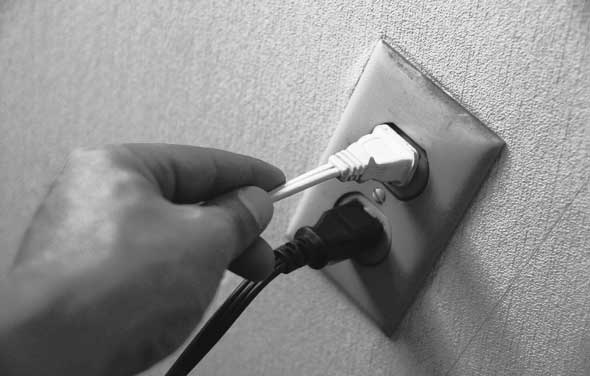Op-Ed: Pull The Plug On The Political Machine

The following was submitted by Ed Jaworski, president of the Madison-Marine-Homecrest Civic Association and director of the Four Borough Neighborhood Preservation Alliance. Looking to get involved? E-mail Jaworski.
There was the fictional town of Mayberry in the popular 1960’s TV series, “The Andy Griffith Show.” Who decided that Mayor Stoner would run to succeed Mayor Pike? Were Sheriff Andy Taylor and Deputy Barney Fife elected or appointed by some never-seen political boss?
Since Mayberry was a small, one traffic sign town, picture ordinary people, rather than a “political machine,” making these decisions. Perhaps conversations first took place among neighbors at the barber shop or general store, and then solidified at a town hall gathering. Certainly such citizen participation is what was intended by this country’s founding fathers when town meetings took place in colonial–era churches
The U.S. Constitution begins with “We the people.” It doesn’t refer to party leaders, or political clubhouses, or backroom deals, or following party rules. It probably envisioned neighbors openly getting together so that they might decide on representatives.
So, where do “We the people” fit into the process of selecting candidates for vacant elected posts – especially Anthony Weiner’s seat in Congress?
Probably about where our Southern Brooklyn neighborhoods were last winter in the snow removal debacle: Buried under excuses, wondering who to trust.
The Declaration of Independence states: “Whenever any form of government becomes destructive…it is the right of the people to alter or abolish it.” At ballgames, the equivalent statement is: “Throw the bum out.”
The 17th Century British philosopher John Locke wrote about “social contracts” between individuals, and that the legislative “has a trust to fulfill.” Locke surely would see political bosses as equivalent to tyrannical monarchs. What with his caving in to party bosses to fill the assembly and congressional vacancies, I now question how much trust to place in Governor Cuomo’s pronouncements about needing to restore trust, and calls for ethics reform in New York’s elected bodies.
I have been asking: Who in New York City’s government can we trust? Who isn’t a bum, manipulative weasel, or self-styled monarch? That question starts at the city’s highest elected post, filters down to the first step of so-called democratic participation, the Community Boards, and long has led up to dysfunctional Albany.
In addition to the bucket of disappointment thrown at us by Anthony Weiner, and handling of last winter’s snows, Southern Brooklyn has endured other recent messes you’d never find in Mayberry. State Senator Carl Kruger is up for indictment on bribery charges, which surprised us more in how long it took to catch up with him. I am outraged that his party pals continually renominated him. Why should we trust them with giving us honest, viable candidates this time? (Candidly, I know little about congressional nominees David Weprin and Bob Turner).
It’s time to pull the plug on the political machine, which often takes the easy road by simply recirculating good old, loyal boys, much like baseball managers. Let’s find new blood – interested, knowledgeable, involved neighbors who aren’t being “paid-back” for loyalty or dancing like puppets – both for the elected posts and for highly politicized community board seats.
Here’s a suggestion to “alter or abolish” the current system: Give legitimate civic associations a role in the selection of local candidates. If the powers that be won’t agree, now the new ballot format offers an easy, doable scenario: Find and agree upon a candidate for a massive write-in vote. In fact, I’m looking for a start-up alliance of Brooklyn civic groups to do just this.
Let’s show that citizens can stop party bosses from hijacking the democratic process. We need our own Mayberry-like town hall gathering. Time to chase the foxes away from the chicken coop.



